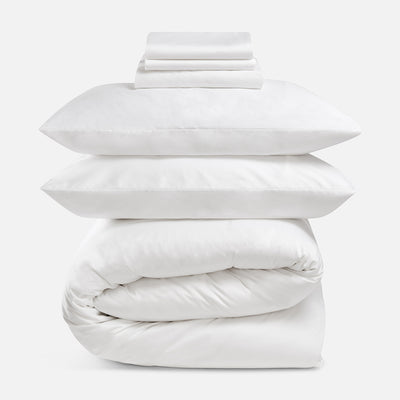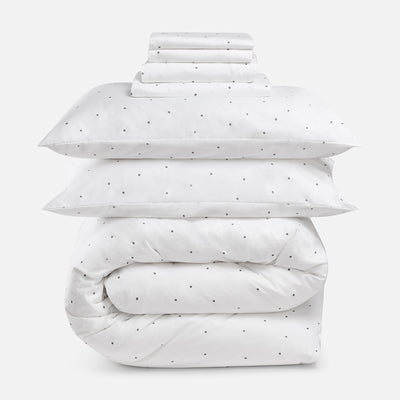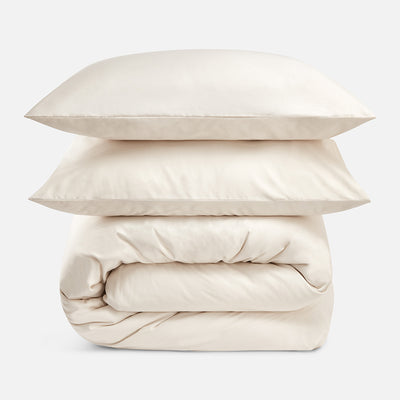
In the UK, we welcome summertime with open arms; the warm sunrises, longer days, and the glorious sunsets in the evenings. Summer never fails to lift our spirits, with the fresh air and hot sun always seeming to make life just that little bit easier. But getting to sleep at the end of these summery days can often be not so easy.
In this short guide, we help you to discover which types of bedding are best for the summer months. So you can wave goodbye to those uncomfortable sleepless nights, where sticking one foot out of the bed and throwing your duvet on the floor seem like the only options for getting a good night’s sleep.
Bed Sheet
The type of fabric you choose when buying your bedding can make all the difference to your night’s sleep. Bed sheets made from natural materials such as cotton are a perfect choice for those hot summer nights. 100% cotton sheets have a natural lightweight structure, which allows air to circulate, therefore reducing the amount we sweat during the night. The breathable nature of high quality cotton bedding helps to regulate our body temperature, allowing us to relax, which gets us one step closer to sleep. However, bed sheets made from man-made fibres, such as polyester, do not have this added benefit. Therefore, using non-natural bed linen can often result in one of those dreaded sticky nights filled with tossing and turning until the early hours of the morning.
On top of this, 100% cotton bed sheets also have the ability to keep us warm during the cooler summer nights - which are important to prepare for here in the UK, where relying on warm weather is a fool’s errand. Cotton sheets can be your best friend all year round, particularly if they’re of a high thread count. The higher the thread count is, the more cosy your bedding will feel, with the closely woven threads (such as those found in 500 thread count bedding) being the perfect choice for keeping you warm on the cooler nights during summer.
Duvet
Another important consideration to bear in mind when choosing the perfect bedding for the summer months is the tog rating of your duvet. The tog rating of a duvet tells us how effective the material is at trapping in heat (and therefore keeping us warm). Tog ratings range from 1 to 15, with the coolest (1-7) being ideal for the summer months, and the warmest 10.5+ being perfect for wintertime.
Some people like to have multiple duvets that they can change to suit the temperature depending on the time of year. However, this can often be expensive, time consuming and take up precious storage space. Therefore, many people tend to opt for a duvet with a tog rating of around 10, which is a happy medium for all year round.
Duvet fillings can be made from either natural or synthetic material, with each coming with its own variety of benefits and drawbacks. The duvet filling you choose depends on personal preference, but to help you decide, we’ve created the following table to describe some of the pros and cons of natural vs synthetic duvet fillings.
|
Natural |
Synthetic |
|
Allow your skin to breathe |
Good for allergy sufferers |
|
More durable |
Can be washed frequently |
|
Warmer |
Inexpensive |
Sleep is crucial for our physical and mental well-being, which is why we value the importance of helping you to find bedding that will allow you to sleep well all year round. We hope this guide has been useful in giving you an insight into which types of bedding are best for the summer months.










